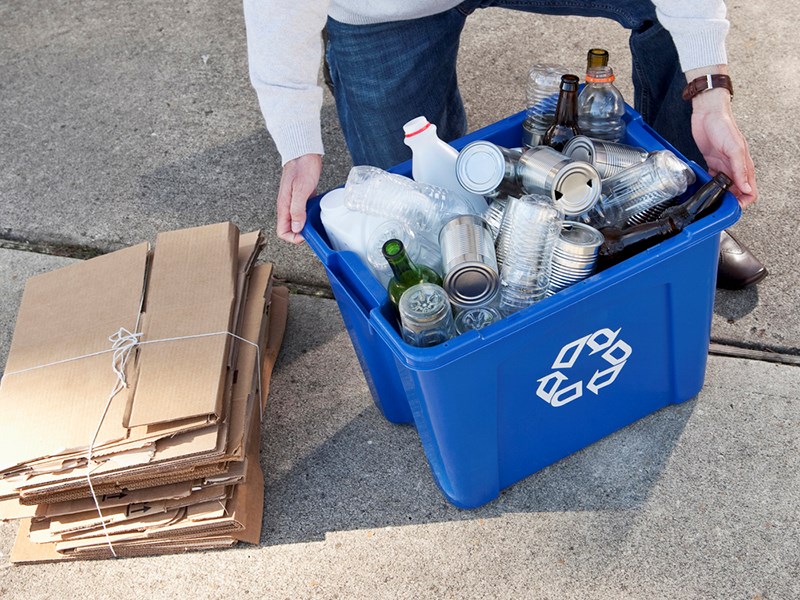Everything that has ever been manufactured “should,” in a sense, be recyclable. Nonetheless, in a world where the end of life of our toys and so-called necessities is not always considered, this is not the reality.
When multiple materials are joined together, often through adhesives and screws, it can be challenging, if not impossible, to separate and recycle them. Fortunately, when it comes to product packaging and printed paper, recycling is a bit more streamlined than electronics, for instance. Paper, metal, plastic, foam and glass are what most of our food and everyday items come packaged in, and these are predominantly recycled through a relatively new non-profit, Recycle BC.
If you’ve been tuning into national news lately, you would have heard that global recycling markets have changed significantly. Many Canadian provinces are struggling to find new end markets for their recyclables as foreign markets have shut their doors, or shifted rather suddenly due to unclean loads and essentially what is garbage being mixed in with recyclables.
Fortunately, BC finds itself in a uniquely resilient position with Recycle BC as the organization established a policy of using North American markets for everything it collects, except paper. Locally, Powell River curbside recycling and much of what is collected in our recycling depots goes through Recycle BC’s filter to be processed and then repurposed in some way.
If you’re one of those curious minds, you may be interested in a bird’s-eye view of how Recycle BC’s packaging and printed paper are processed:
• Plastic bags are made into pellets, which are then recycled into new packaging and products in Metro Vancouver.
• Polystyrene foam is recycled in the Lower Mainland through Foam Only and made into picture frames, crown moulding and the like.
• Hard plastic packaging is recycled in Metro Vancouver, where it is processed into pellets that can then be transformed into new packaging and products.
• Glass stays in BC, where it becomes either new containers, sandblast material, or construction aggregate.
• Metal containers head to BC, Ontario or the United States to be recycled into new packaging or sheet metal.
• The newest stream being collected: “Other flexible packaging,” also known as most snack bags, mesh onion bags, zipper locked bags, bubble wrap and more, stays in BC, and is the only Recycle BC stream not necessarily being recycled. Instead, the non-profit is collecting this hard-to-recycle material and researching ways to recycle it. In the meantime, any collected material from this stream is being converted into engineered fuel used as a substitute to coal for industry.
• Paper either goes to BC, the US, or international end markets where it is made into egg cartons, boxes or other paper products.
Reducing our consumption is the best, first filter to having a lighter impact on our sensitive ecosystem. Consider buying in bulk, making from scratch and repairing items before purchasing new. When purchasing new is the only option, look for lightly packaged goods, as well as products made from recycled content.
Let’s Talk Trash is qathet Regional District’s waste-reduction education program.



